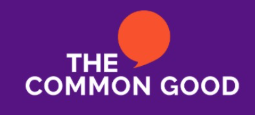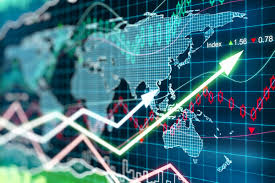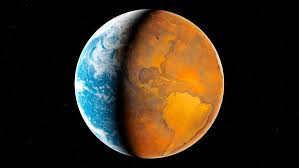Insights, 8/19/19
In this edition of insights, we are focusing on our global sphere. Focusing on the intertwining relationships between CEOs and politicians, shifts in our economic natures, climate change and the crisis it is presenting, the possible push of our global economic to a recession, and the chances of autocracies nations shifting to democracy. Read the insights below, and, of course, we encourage you to read the articles in full and inform yourself on these important issues:
“The Business Roundtable today made a small, symbolic but significant move: 181 of the nation’s top CEOs agreed that driving shareholder value is no longer their sole business objective....They expanded their mission beyond mere wealth creation to include everything from taking care of employees to helping their communities. This shift, spearheaded by BRT Chairman and JPMorgan Chase CEO Jamie Dimon, reflects the growing pressure from employees, social media and customers to do more than increase stock prices...CEOs need to be de facto politicians, thanks to several unambiguous social trends: Millennial employees demand their employers stand for something beyond profit; It is getting harder to recruit and retain talent, especially tech talent, if profit is the only objective; A rising number of consumers make purchasing decisions based on a company's social purpose.; The media applies a lot more pressure on CEOs to take positions on political topics, such as race and immigration; Every CEO/company is vulnerable to split-second, social media uprisings. Undefined CEOs and companies find it impossible to push back.” - Jim VandeHei, Axios, MORE
“Global markets were seized by fear last week that trade wars were slowing growth in Germany, China and the United States. But the story here is bigger than President Trump and his tariffs. The postwar miracle is over. Since the financial crisis of 2008, the world economy has been struggling against four headwinds: deglobalization of trade, depopulation as labor forces shrink, declining productivity and a debt burden as high now as it was right before the crisis. No major economy is growing as fast as it was before 2008... In almost every country, the national discussion focuses on what must be done to revive growth and ignores the fact that the slowdown is driven by forces beyond any one government’s control. Instead of dooming ourselves to serial disappointment and fruitless stimulus campaigns, we need to redefine economic success and failure.” - Ruchir Sharma, Chief Global Strategist, Morgan Stanley, New York Times, MORE
“Unsustainable land use and greenhouse gas emissions are delivering a one-two punch to natural ecosystems that are key to the fight against global climate change. And without sweeping emissions cuts and transformations to food production and land management, the world stands no chance of staving off catastrophic planetary warming. That’s according to a dire new United Nations assessment of the complex relationship between terrestrial landscapes and climate change. The report from the Intergovernmental Panel on Climate Change, or IPCC, the leading U.N. body of researchers studying human-caused global warming, warns that the unfolding crisis poses a serious threat to global food security.” - Chris D’Angelo, Huffington Post, MORE
“When assumptions about how the world works are shattered, a global downturn is often the result. The world learned in the early 1970s that the era of cheap oil was over, in the early 1980s that countries could default, and a decade ago that American mortgages and global banks aren’t safe. Today, a similar rethink of globalization is under way. From Washington to Buenos Aires, nations’ mutually reinforcing commitment to open markets is disintegrating. In response, investors are rearranging portfolios, businesses are rethinking investments and policy makers are struggling to respond—all of which are pushing the global economy closer to recession….For the past two years, the U.S. and world economies shrugged off nationalism and populism. Protectionism was contained and more than offset by positives such as Trump’s tax cut and deregulatory drive. It can no longer be ignored: Businesses and investors, unsure of what if any rules will govern international commerce, are retreating from risky investments.” - Greg Ip, Wall street Journal, MORE
“It has been a good decade for dictatorship. The global influence of the world’s most powerful authoritarian countries, China and Russia, has grown rapidly. For the first time since the late nineteenth century, the cumulative GDP of autocracies now equals or exceeds that of Western liberal democracies...Conversely, it has been a terrible decade for democracy. According to Freedom House, the world is now in the 13th consecutive year of a global democratic recession. Democracies have collapsed or eroded in every region, from Burundi to Hungary, Thailand to Venezuela. Most troubling of all, democratic institutions have proved to be surprisingly brittle in countries where they once seemed stable and secure...scholars used to hope that it was only a matter of time until some of the world’s most powerful autocracies would be forced to democratize, they now concede too readily that these regimes have permanently solved the challenge of sustaining their legitimacy.” - Yascha Mounk [Past TCG Speaker], Foreign Affairs, MORE
The views and opinions expressed in this article are those of the authors and do not necessarily reflect the official policy or position of The Common Good.





